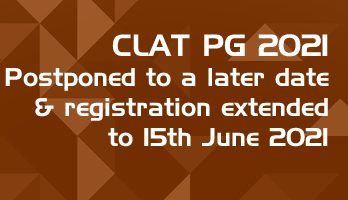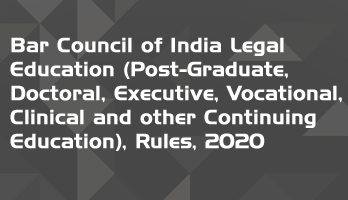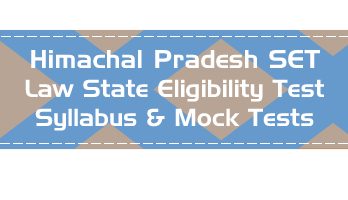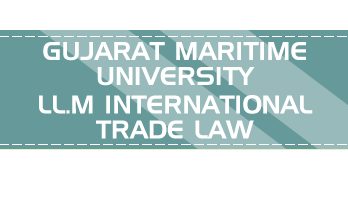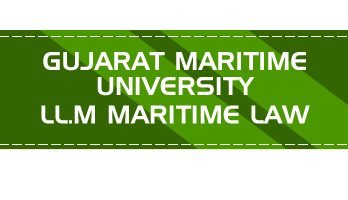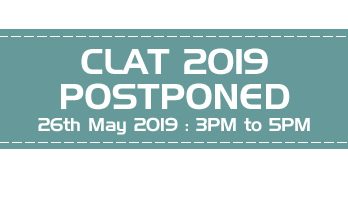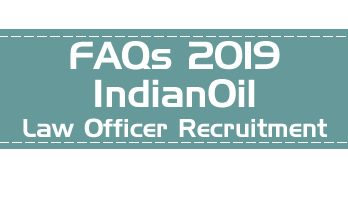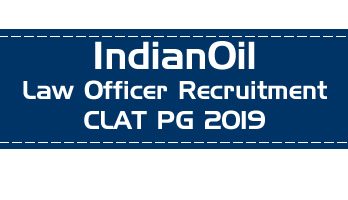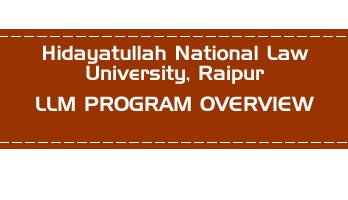Q : When and where should I go for LLM classroom coaching for the CLAT in May 2020?
Ans :
The approach to the CLAT LLM prep is somewhat different from the approach to CLAT UG :
(1) It is mostly an objective paper. (The details of the new ‘subjective’ part have not been officially confirmed as yet.)
(2) There are no ‘analytical’ / ‘quants’ / ‘reasoning’ based questions
(3) A bulk of the questions emphasize more on memory & recognition skills (e.g. Which article says this . . . Which case is for what . . . What Salmond / Austin / Hart or Holmes said etc.
(4) A significant number of questions (80% to 85%) are repeated / variations / adapted from previous exams or from other similar exams.
Extensive theory is not the best way to prepare for multiple choice based exams like the CLAT PG LLM.
What’s the approach?
The ideal approach would be to solve as many ‘relevant’ MCQs as possible, covering the entire syllabus, with focus on the critical areas and solve all the previous papers you can find.
Complete 2 (or preferably 3 or more) mock tests every day. Review the results carefully and make a note of the questions you got wrong and memorize the correct answers.
Repeat the process every day till you circle back to the first set of mock tests and just keep repeating the cycle.
In around 10 – 15 days, you will have become familiar with a bulk of the ‘important’ questions; and you will know the answer by instinct and your scores will start going up.
What do I mean by ‘relevant’ MCQs ?
The constitution of India has 448 articles; and there can be at least a 1000 MCQs about the Constitution. But that would be a sheer waste of time and effort for the students.
Careful analysis of past papers + papers from similar exams will show that 80% of the questions are about some 45 odd articles i.e. 10% of the constitution accounts for 80% of the questions. Another 10% are around some rarely asked articles, but should be covered.
The remaining 10% are ‘Googly’ questions – which are extremely rare.
So, by identifying the most important aspects of the syllabus, the Question bank can have a limited number of questions – but at least 90% of the questions will come from within the bank.
Q : How can a law graduate from the United States begin a legal career in India?
Ans :
Depends on your Nationality / Citizenship status . . .
A degree in law from a foreign University, obtained by an Indian national or a person of Indian Origin having double citizenship in India who has completed 21 years of age, can be recognized for the purpose of enrollment as an Advocate in India if certain other conditions are fulfilled.
(There are some guidelines on the type of program, years of study etc.)
If you are an Indian national or a person of Indian Origin having double citizenship in India :
[1] Go to the Bar Council of India (BCI) website and check the list of BCI recognized foreign universities / Institutions and confirm if your college is already on the list and you meet the other criteria mentioned.
[2] If your college is not on the list, contact the BCI about how to get your College / Degree accredited by the BCI.
(Contact via email so that everything is documented)
[3] Completing your course from these Universities does not automatically allow you to enroll as an advocate in India. You have to take a qualifying exam conducted by the BCI once every year.
(Search for the details of the qualifying exam to be taken by holders of degrees from recognized foreign Universities.)
[4] After clearing the qualifying exam, you can enroll as an Advocate with a state Bar Council (The State in India where you are residing) and start practicing for up to two years, within which you have to clear the All India Bar Exam.
(This is common for everyone, whether the LLB degree is from India or from a foreign University.)
If you are a Foreign National :
In a recent ( ) judgement, the Supreme Court of India ruled that foreign lawyers cannot practice law within the country.
Practicing of law includes not only appearance in courts but also giving of opinion, drafting of instruments, participation in conferences involving legal discussion.
Subject to BCI rules, they foreign lawyers may engage in arbitration proceedings if the case pertains to international commercial arbitration. Foreign lawyers may also provide legal advice for Indian nationals concerning international commercial arbitration.
Other work around options . . .
Formal / Informal partnerships & Tie-ups or referral agreements with Indian Lawyers / Law firms has been done in the past and there are also some legal rulings on the validity of such arrangements; but that will be out of scope for this answer.
Q : Can I do LLB after 12 class?
Ans :
Yes.
- The minimum academic eligibility for a 5 year LLB is 12th
- The minimum academic eligibility for a 3 year LLB is a Graduation
Since LLB is a ‘Higher Degree’ of sorts, the requirement for a LLB is that the student should have another Bachelors degree. So the 5 year LLB (after +2) is a dual degree program – BA LLB / BBA LLB / BCom LLB etc.
The three year LLB needs the candidates to have a Bachelors degree (any Bachelors degree) before taking up the LLB.
In India, there are three ways to taking up an LLB course . . .
[1] Without any entrance exam (3 year / 5 year) – There are many tier-3 and some tier-2 Law Colleges across India, where admission is done on a first-come-first-admitted basis.
No entrance exam. Just meet the minimum criteria in terms of your previous academics and pay the fees.
These are proper colleges, recognized by the Bar Council and have 3 year & 5 year LLB courses, affiliated to various Universities.
They normally will not have any placement process and the other facilities also are quite basic.
But, you will get a proper LLB degree after completing the course.
[2] With entrance exam (3 year / 5 year) – there are tier 2 colleges that have their own entrance exam and in some states there is a common entrance exam for Law Courses across many participating colleges – tier 2 & 3.
For example, the Andhra Pradesh – AP LAWCET, Telangana – TS LAWCET, Kerala CEE , DU Law entrance exam etc.
Bulk of the seats are filled through the exams, but there will usually be a ‘Management quota’ of seats with higher fees in private colleges that participate in these common entrance process.
[3] Through CLAT (5 year only) – CLAT is the common entrance exam for the National Law Schools / National Law Universities across India.
These tier 1 institutes have placement process, superb facilities and the competition for getting admission is also quite tough.
Note : NLU Delhi and HPNLU Shimla do not participate in the CLAT as they have their own separate entrance exams.
Q : Can I do a BA LLB from home?
Ans :
No.
This is a frequently asked question; and my answer is adapted from couple of my previous answers . . .
A quick Google search shows several Institutions in India offering a distance education ‘Bachelors degree in law’, usually a BL / BBL etc. But there are also some which may even offer an LLB!
But, The Bar Council of India does not recognize distance LLB programs for practicing as an advocate.
Why BCI does not recognize distance LLB for practicing as an Advocate?
LLB is a ‘professional’ degree that allows graduates to practice independently after graduation.
By design, the curricula of all ‘Professional’ degrees have a theoretical aspect + a practical and/or experiential aspect.
The practical and experiential aspect covers the application of the theory in real world situations.
For LLB, there are moot courts, class discussions & debates, viva exams, practical exercises in drafting & pleading, court visits to observe and document proceedings; such practical aspects may not be possible in a distance education model.
Hence, the Bar Council of India mandates that all LLB (BCI recognized) courses in India should be conducted in a full-time mode only.
So, while you may complete a distance learning degree, it will not be enough to make you eligible to actually practice as an advocate.
It might be useful as a way to enhance your learning or add extra qualifications to your resume; but you will need a full-time LLB from a BCI recognized college / university to practice as a Advocate.
Q : Is the ability to clear NET exam and be a good researcher the same?
Ans :
Not really . . .
Exams are just rudimentary indicators of what the test-taker has learnt.
Learning can also be by rote; which means that the test-taker remembers the subject / topic; even if he doesn’t understand it.
Also, the Paper 1 of NET – i.e. the Research related paper is a theoretical paper, which just tests the test taker’s awareness of research methodology; not his/her ability to apply the same in the real world.
The secret to clearing the UGC NET exam is to keep practicing as many MCQs as possible; so that you can identify the correct answers and score enough marks to make it to the top 6%.
Does clearing NET have a correlation with being a good researcher? Nope.
An example from a different field . . .
I had a couple of LLB classmates who are also my good fiends.
One of them was very studious – he made it a point to mug-up all the Sections of various laws and wrote theoretically precise answers and he scored quite highly in the exams.
The other person is relatively laid back; who put in just enough effort to clear the exams and would scrape through with minimal effort.
If I were to be asked to choose a competent Lawyer for any critical case, I would choose the second person any day.
His bookish knowledge may be limited; but he knows the gist of all the important laws and has a practical approach towards getting the job done.
Going back to the NET exam, high scores may indicate that the test-taker knows the subject. But a good researcher will also need to be able to get the job done.
So : It is not necessary that there is a correlation between high scores and the ability to be a good researcher.
Q : What is the procedure for applying for the post of assistant professor after clearing NET and completing Masters in economics?
Ans :
Reusing my answer from another similar question . . .
Qualifying exam vs. Selection exam . . .
The UGC NET is a qualifying exam, whereas exams like the Judicial Services exams are selection exams.
In the UGC NET, the top 6% of the eligible candidates are declared as ‘qualified’.
However, that does not guarantee a job.
The next step is to track the notifications from Government and Private colleges calling applicants for faculty positions and apply for the same.
These notifications are published in :
- In the Employment / Opportunities sections of local editions of national news papers
- On the College websites
- On job portals like Naukri & Monster
- Aggregator websites which collate and track such jobs
The selection will be based on your prior academic credentials, UGC NET scores, interview performance, past experience etc.
In the meanwhile, try to get your foot in the door as a guest faculty in any college, since it will count towards your overall experience and will also increase your chances of getting into a full-time faculty position.
So, to summarize; after you are UGC NET qualified :
(1) Make a short-list of the colleges where you can try and get-in as a guest faculty; even if the pay is not good.
(2) Find some good websites that are tracking faculty vacancy announcements and keep applying.
(3) Don’t be choosy – even if you have to move to a different town or take up a role in a nondescript college, that’s ok to start your career; give it your best shot.
(4) Even if you are not interested in a particular college, do attend the interviews to get used to the process & get interview experience.
(5) Have a plan B – you cannot keep waiting for ever. Have an alternate career option.
(6) Work as a guest faculty / visiting faculty to gain experience and build credibility + get your foot in the door.
Q : Can I sue family members on behalf of my grandma for being left out of her father’s inheritance? She, or her children received nothing while her brothers all inherited large amounts of land.
Ans :
Depends . . .
First consult a practicing Lawyer in your state to understand the statute of limitation applicable in your Grandma’s situation.
I.e. Depending on the specific state in the USA, there may be anywhere between one year to six years within which you have to sue.
If the limitation time has not run out and if there is a possibility to sue, I believe only your Grandma can initiate the proceedings; which can be handled by you + a Lawyer with a valid power of attorney from your Grandma.
Once you have the POA, you will need to initiate the proceedings and the first step would be to get the details of her father’s property and how he acquired it.
Because if the property / money was completely self-acquired by the benefactor; he may have the complete right to will it to anyone – with only the mandatory ‘maintenance & support’ expenses part being the rightful share of the wife and children. (These exact applicable rules need to be confirmed with a practicing Lawyer in your state)
On the other hand, if the property was mostly inherited by the benefactor, the next generation may have some claim over such ancestral property.
If the limitation period is not applicable; and your Grandma has a valid claim to a share, you need to get clarity on why was she left out – did she get anything in lieu of the share in the property. I.e. Did she get some other property / valuables / cash etc. which could be interpreted as her fair share.
Also, who will you sue? If her brothers are still alive and if the land in question is still intact, there might be some glimmer of hope. If they are deceased, I don’t think suing their descendants will work.
Even suing her brothers may not work if there was a proper will on the basis of which the land was divided. Her brothers can be held accountable only if there was no will and they divvied up the property between themselves keeping your Grandma out.
TLDR: Consult with a Lawyer in your state. I think the Limitation period might already be over long long ago; and a suit will not hold up.
Q : What legal forms do I need or legal actions I can take to relinquish my part of inheritance as one of the beneficiary prior to the will? Can I just not show up or ask a lawyer to represent me?
Ans :
Contact a practicing Lawyer in your country / city . . .
There can be multiple scenarios, such as :
- A will has not been created by the benefactor – who is still alive and legally capable of creating a will.In which case, it would be preferable to send a formal communication (notarized, through a lawyer etc.) that you do not want to be included as a beneficiary in any will and should not be treated as a claimant / beneficiary even if the benefactor dies intestate – i.e. without a will.
- A will has already been drafted, which you are aware of, but it has not been probated (benefactor is deceased) and or the benefactor is still alive.Here again, sending a formal communication as early as possible would be preferable, so that you can formally relinquish ahead of the probate process; OR if the benefactor is still alive – he/she can get a revised will drafted.
- You become aware of the will and the inheritance only ahead of / during the probate process.Here, if you decide to relinquish the inheritance and the other beneficiaries are also not willing to take over your share, a practicing lawyer in your country should help you with the options available.
I believe that depending on the applicable laws, the inheritance may come with estate duties & inheritance taxes; the property may have ongoing suits / legal issues, the unwanted inheritance may affect the benefactor’s own financial status – especially in case of bankruptcy proceedings or affect eligibility for loan waivers etc.
So, it would be preferably to go through a Lawyer and opt out at the earliest, with formal and documented communication. Not showing up will not help since the inheritance will still legally come your way;
Q : What are the names of the UGC-approved educational journals?
Ans :
Check on the UGC Website . . .
As of Q4 2017, the Revised UGC – Approved List of Journals consisted of 32,659 journal titles across multiple disciplines.
Every couple of years, new journals are added and low quality / defunct / dormant / redundant journals are removed.
So the current list keeps changing.
If you go to the UGC website, there are a couple of pages & PDFs with the details of the UGC approved journals, classified under various categories, specializations. languages and even an alphabetical index.
Just Google for UGC journals and you’ll find the URL.
Go through the latest notifications to ensure that you looking at the latest lists. Also read the FAQs on how the recognized journals process works and what happens to works published in previously active journals etc.
Q : How do I prepare for the UGC NET for history subjects?
Ans :
Thanks for the A2A . . .
Reusing my answer from a similar question.
With a decent amount of effort and some smart preparation, it is completely possible to crack the NET in the first attempt – and a number of candidates do that every time.
The NET is not a difficult exam to start with. The challenge is that you have to make it to the top 6% to get qualified.
Break-up your study strategy into two distinct parts – Paper 1 & Paper 2.
For Paper 2 : Extensive theory books are not required . . .
A number of students delve into extensive theory to prepare for the NET – which is not something I recommend. Because the theory part is something that you have already studied in your graduation & PG. Do you really want to dig up all the old text books and study again ?
Instead, focus on solving as many previous papers and mock tests as possible; which will help you focus on the crucial areas and understand your weaknesses.
Also, the approach is to know or guess the correct answers within the limited time available. So practice, practice and practice.
When should you start preparing ?
I always find it easier to focus on the preparation for any exam when I am running against a deadline. If I have too much time, I tend to slack off. So two ~ three months is the ideal time for focused prep.
Selective & focused study is the best approach for the NET.
UGC NET Paper II, it is mostly a memory game. For example, History is a vast topic; However, when the entire exam is for 100 questions; across the entire set of History subjects, most of the questions will be predictable.
You just need to remember the right answer – even if you don’t know the detailed theory behind it.
For Paper 1, apart from memory based questions, you need to know the processes of how to calculate, select or guesstimate the right answers.
For both papers, it is all about practice, practice and more practice; since most of the questions are repeated, adapted or derived from a standard pool of questions.
What I would suggest for both Paper 1 and 2 is :
[1] Solve at least 5 previous papers even before you start your prep.
[2] Review the papers you have attempted and you will identify your strengths and weaknesses. For example, in paper 1 you may be very good at data interpretation, but need to improve your reading comprehension etc.
[3] Watch good explanation videos of previous question papers which explain how to solve the different types of problems.
[4] Start your second round of practice and again attempt as many previous papers + mock tests as possible.
[5] Review each paper thoroughly before attempting the next paper
Within 15 ~ 20 days, you will see a significant improvement in your scores. Keep practicing till you consistently score above 85% and you are ready to crack the NET exam.
Solving as many mock tests as possible helps you clear almost all the ‘Memory Biased’ exams; like the UGC NET Commerce, Law, English, History etc. In these exams, I just need to know ‘What is the correct answer ?’
For ‘Knowledge Biased’ subjects like Mathematics, you will need to go back to the basics wherever necessary since you will need to know ‘How to arrive at the correct answer ?’
Q : What is the approximate percentage selection of students in the UGC NET?
Ans :
6%
The common cut-off is 6% of all eligible candidates. I.e. 6% of all eligible candidates (who score the minimum required in both the papers) – in each category (reserved & general) will be declared as NET qualified – in each subject.
To put it in simpler words, you have to score enough marks to be ranked within the top 6% in your category & subject to be UGC NET qualified.
Candidates who are 30 years or less will be qualified as ‘JRF + Asst. Prof.’ and candidates who are 31 and above will get a ‘Asst. Prof’ qualified certificate.
Since the number of test-takers will vary, the actual number will also keep changing – but the percentage will be constant.
Q : If a law is rescinded should people incacerated for breaking that law be set free?
Ans :
I am answering this question from the context of the Indian Legal System; but similar rules exist in other countries.
To understand the effect of the repeal of a law, we need to look at something called the “General Clauses Act, 1897”
The relevant part of the act is as below :
6. Effect of repeal
Where this Act, or any Central Act or Regulation made after the commencement of this Act, repeals any enactment hitherto made or hereafter to be made, then, unless a different intention appears, the repeal shall not-
(a) revive anything not in force or existing at the time at which the repeal takes effect; or
(b) affect the previous operation of any enactment so repealed or anything duly done or suffered thereunder; or
(c) affect any right, privilege, obligation or liability acquired, accrued or incurred under any enactment so repealed; or
(d) affect any penalty, forfeiture or punishment incurred in respect of any offence committed against any enactment so repealed; or
(e) affect any investigation, legal proceeding or remedy in respect of any such right, privilege, obligation, liability, penalty, forfeiture or punishment as aforesaid;
and any such investigation, legal proceeding or remedy may be instituted, continued or enforced, and any such penalty, forfeiture or punishment may be imposed as if the repealing Act or Regulation had not been passed.
In other words, laws, acts & rules may be rescinded from time to time for various reasons; many a times because they have become irrelevant.
However, any actions committed / committed in the context of the act, when the act was still relevant and in-force, will continue as usual – as if the repeal has not happened; Unless the repeal was done because the original law itself was unconstitutional or if the repeal is specifically done with retrospective effect.
Q : What is the maximum number of students intake in a Deemed University for a particular course? If there is a limit, what would that limit be?
Ans :
There is no ‘total limit’ as such, but . . .
What the UGC prescribes for all Universities (including deemed to be Universities) are some specific numbers about the underlying infrastructure and teach-student ratios.
For example, for PG programmes, the teacher to student ratio has to be 1:10 for science and 1:15 for Humanities**.
For UG programmes , the ratios are like 1:25 for science and 1:30 for Humanities**.
To ensure that the ‘teacher’ is an actual teacher and not a ‘place-holder’, UGC specifies the minimum number of hours for a ‘teacher’ (for the purpose of the ratio computation) should not be less than 40 hours per week and not less than 30 weeks of work in a year.
So, colleges can hire enough faculty & also have the other infrastructure to enroll as many students as they wish.
** See official UGC notifications for the current and exact numbers.
TLDR : There is no specific limit. As long as a college meets the required Teacher : Student ratio and has the other support infrastructure, they can enroll as many students as they wish.
Q : Is a degree mark also considered for the NET exam?
Ans :
No.
The minimum academic eligibility requirement for the UGC NET Exam is a Master’s Degree. Your Bachelor’s Degree marks are not taken into consideration.
The UGC NET actually has two aspects :
- qualification for JRF + Assistant Professor
- qualification for Assistant Professor alone.
The basic eligibility criteria for both is – at least 55% marks* (without rounding off) in Master’s Degree OR equivalent examination from universities/institutions recognized by the UGC.
In fact, the syllabus, exam pattern etc. everything is same for both except the age limit.
For JRF + Assistant Professor, there is a upper age limit of 30 years*
For Assistant Professor alone, there is no upper age limit.
* Subject to relaxation for specific categories of candidates.
Q : What are the procedures to do a three year law degree after graduation?
Ans :
This is copy-pasted & edited from my answer to other similar questions.
In India, there are three ways to taking up an LLB course . . .
[1] Without any entrance exam (3 year / 5 year) – There are many tier-3 and some tier-2 Law Colleges across India, where admission is done on a first-come-first-admitted basis.
No entrance exam. Just meet the minimum criteria in terms of your previous academics and pay the fees.
These are proper colleges, recognized by the Bar Council and have 3 year & 5 year LLB courses, affiliated to various Universities.
They normally will not have any placement process and the other facilities also are quite basic. But, you will get a proper LLB degree after completing the course.
The list of BCI approved Law Colleges will help you to shortlist the colleges nearest to your residence.
[2] With entrance exam (3 year / 5 year) – there are tier 2 colleges that have their own entrance exam and in some states there is a common entrance exam for Law Courses across many participating colleges – tier 2 & 3.
For example, the Andhra Pradesh – AP LAWCET, Telangana – TS LAWCET, Kerala CEE , DU Law entrance exam etc.
Bulk of the seats are filled through the exams, but there will usually be a ‘Management quota’ of seats with higher fees in private colleges that participate in these common entrance process.
[3] Through CLAT (5 year only) – CLAT is the common entrance exam for the National Law Schools / National Law Universities across India.
These tier 1 institutes have placement process, superb facilities and the competition for getting admission is also quite tough.
Note 1 : NLU Delhi and HPNLU Shimla do not participate in the CLAT as they have their own separate entrance exams.
Note 2: There are also some private colleges that also use the CLAT scores for their admissions process.
Q : What type of subjective questions come in the CLAT PG for LLM?
Ans :
History repeats itself . . .
Recently, the CLAT authorities announced about the suggested inclusion of a subjective part into the CLAT PG LLM exam.
The ‘subjective’ part is not a new concept. If we look at the relatively recent CLAT PG exams, between 2009 to 2014, the paper consisted of both objective & subjective questions.
From 2015 onward, CLAT LLM became a completely objective type exam.
We expect that the final pattern of the CLAT PG exam may be 100 marks Objective + 50 marks Subjective. (The 2014 pattern)
To account for the reduction in the objective section, there may some changes in the questions – our database of questions is being updated regularly to ensure that all the expected & important CLAT PG objective questions are covered.
With regards to the subjective part, while we wait for the official announcement, we expect that there will be one or ideally two essay type questions to be answered from a choice of three or four.
The questions may be a mix based on current legal issues & important jurisprudence concepts – We are tracking the official updates and we will be adding the indicative questions to our CLAT PG LLM online practice pack.
What we suggest : Don’t worry about the subjective part for now. Keep practicing the mock tests and previous papers. Once the official announcements come out, we will publish the list of suggested subjective questions which you can practice.
Personally, I feel that the introduction of the subjective part may be a retrograde step; though the intentions may be good. It introduces needless controversy into the selection process; since the subjective part will need to be manually corrected. The subjective part will also lead to calls for revaluation, photocopies of answer sheets etc. A more structured objective type exam would be good enough.
Q : If ignorance of the law excuses no one, does it mean that we should all take law courses and pass the bar exam?
Ans :
“Knowing the Law” Vs. “Practicing the Law” . . .
“Knowing the law” is the concept whereby a person who is living, visiting or transiting through the political boundaries of a country is expected to know the laws & rules that are applicable on him.
Practically speaking, even accomplished Lawyers will not be experts with all the laws of a country.
However, the ‘Knowing the law’ concept is used to dismiss any claims by anyone that a particular crime or offence was committed due to ignorance of the law. Else, everyone would start claiming that there were not aware that their act was against the law.
For example, Marijuana may be legal in some states in the US; but that doesn’t make it legal everywhere. And, a person from a state where it is legal cannot buy / sell in a different state and claim ignorance.
I.e. Any person is expected to be aware of the legal / illegal status of their actions (or inaction) based on where they are and what is deemed to be the place where the act / inaction took place. (The ‘deemed location’ part comes into play in case of specific exceptions like Official Embassy premises, Foreign military ships and Cyber crimes.)
TLDR : It is perfectly fine for a person to be totally ignorant of the laws / rules of the country. It is just that if the person commits an act that is an offence under any applicable law, he can be tried & punished for it – and the ignorance umbrella will not protect him.
“Practicing the law” is the situation where you are legally representing some other person as a Lawyer / Advocate / Attorney / Pleader. Such a representation comes with its own powers and responsibilities.
Therefore, a person is expected to have studied the law and passed the bar exam to attest his knowledge of the law – to become eligible to represent other people.
In most countries, a person need not be a Lawyer to represent himself.
Q : How does the jury selection process work in India?
Ans :
It doesn’t . . .
Various forms of the ‘Jury’ system existed in India from since time immemorial, since the settlement of disputes by Pachayats, community elders & leaders was a fairly common practice and continues to this day; especially in rural India.
The formal Jury system was introduced in India by the East India Company and eventually formalized by the British Indian Government – mostly for criminal trails in the High Courts.
Though the practice continued sporadically for a while post independence, the Jury system eventually lost popularity and the 1958 Law Commission recommended it to be abolished.
It was already on its way out when the famous K. M. Nanavati v. State of Maharashtra case (1959) was tried and Mr.Nanavati was held ‘not-guilty’ by the jury in a 8:1 verdict. It seemed as though the jury had overlooked the actual evidence and had given a emotion & sentiment driven decision.
Eventually the High Court overturned the jury verdict and Nanavati was sentenced and eventually pardoned after three years in prison; but the case was one of the last to be tried by a jury in India. (It was not actually ‘the last’, but probably ‘one of the last’.)
The jury system was completely & officially stopped in the early 60’s and the only form of jury system that exists in India today is used for divorce cases in the Parsi community under the Parsi Marriage & Divorce Act.
The Parsi jury members are called ‘Delegates’ – and they are appointed by the State Governments with a normal tenure of ten years. (So the Parsi Delegate system is not actually a jury system in the true sense)
TLDR : It was abolished in the 1960’s – so no jury selections happen in India at this time.
Q : Which book should I refer for UGC NET in law?
Ans :
Reusing my answer from another question :
The NET is not a difficult exam to start with. The challenge is that you have to make it to the top 6% to get qualified.
Break-up your study strategy into two distinct parts – Paper 1 & Paper 2.
For Paper 2 : Extensive theory books are not required . . .
A number of students delve into extensive theory to prepare for the NET – which is not something I recommend. Because the theory part is something that you have already studied in your graduation & PG. Do you really want to dig up all the old text books and study again ?
Instead, focus on solving as many previous papers and mock tests as possible; which will help you focus on the crucial areas and understand your weaknesses.
Also, the approach is to know or guess the correct answers within the limited time available. So practice, practice and practice.
When should you start preparing ?
I always find it easier to focus on the preparation for any exam when I am running against a deadline. If I have too much time, I tend to slack off. So two ~ three months is the ideal time for focused prep.
Selective & focused study is the best approach for the NET.
UGC NET Paper II, it is mostly a memory game. For example, Law is a vast topic; However, when the entire exam is for 100 questions; across the entire set of Law subjects covered in a 3 year LLB* course, most of the questions will be predictable.
(* The UGC NET Law syllabus is based on the standard 3 year LLB syllabus)
You just need to know and remember the right answer – even if you don’t know the detailed theory behind it.
For Paper 1, apart from memory based questions, you need to know the processes of how to calculate, select or guesstimate the right answers.
For both papers, it is all about practice, practice and more practice; since most of the questions are repeated, adapted or derived from a standard pool of questions.
What I would suggest for both Paper 1 and 2 is :
[1] Solve at least 5 previous papers even before you start your prep.
[2] Review the papers you have attempted and you will identify your strengths and weaknesses. For example, in paper 1 you may be very good at data interpretation, but need to improve your reading comprehension etc.
[3] Watch good explanation videos of previous question papers which explain how to solve the different types of problems.
[4] Start your second round of practice and again attempt as many previous papers + mock tests as possible.
[5] Review each paper thoroughly before attempting the next paper
Within 15 ~ 20 days, you will see a significant improvement in your scores. Keep practicing till you consistently score above 85% and you are ready to crack the NET exam.
Solving as many mock tests as possible helps you clear almost all the ‘Memory Biased’ exams; like the UGC NET Law, Commerce, English etc. In these exams, I just need to know ‘What is the correct answer ?’
For ‘Knowledge Biased’ subjects like Mathematics, you will need to go back to the basics wherever necessary since you will need to know ‘How to arrive at the correct answer ?’
Q : What is the difference between the JRF and the assistant professor exam of the UGC NET?
Ans :
Reusing my answer from a similar question :
The UGC NET Exam consists of two aspects – eligibility for Asst. Professor & eligibility for JRF + Asst. Professor.
Everyone takes the same exam, but for JRF there is a upper age limit and none for Asst. Professor.
I. For Assistant Professor Only
- There is no upper age limit for the exam.
- There is no restriction on the number of attempts.
II. For JRF + Asst. Professor
- The upper age limit is as detailed below.
- A candidate can attempt as many times as possible – within the upper age limit eligibility criteria.
Age limits for JRF + Asst. Professor
(i) Not more than 30 years as on 01.12. .
A relaxation up to 5 years is provided to the candidates belonging to OBC (Non-creamy layer, as per the Central list of OBC/SC/ST/PwD/Transgender categories and to women applicants.
*** The relaxation is for all women applicants ***
Relaxation will also be provided to the candidates having research experience, limited to the period spent on research in the relevant/related subject of post graduation degree, subject to a maximum of 5 years, on production of a certificate from appropriate authority.
Three years relaxation in age will be permissible to the candidates possessing L.L.M. Degree.
A relaxation of up to 5 years is provided to the candidates who have served in the armed forces subject to the length of service in the armed forces up to the first day of the month in which the concerned UGC-NET is to be held.
Even if a candidate comes under several categories, total age relaxation on the above ground(s) shall not exceed five years under any circumstances. (e.g. A woman candidate from a reserved category, with LLM degree will still get only a total of 5 years of relaxation.)


